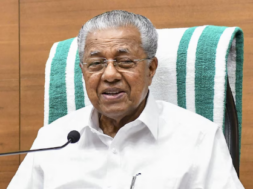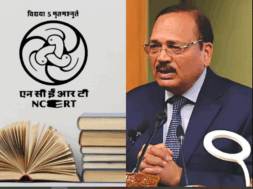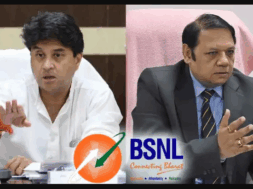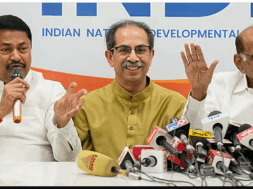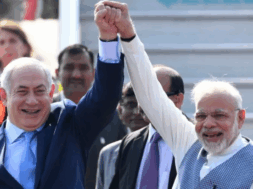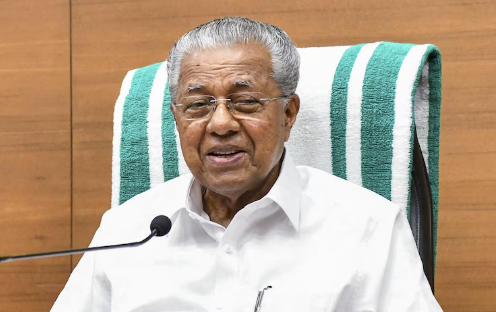
Dear Pinarayi Vijayan, revisit Kerala’s history to understand Sanatana Dharma and Narayana Guru
(Guru Prakash)
‘No doubt the communists get quick results because when you adopt the means of annihilating a man, they do not remain to oppose you. Humanity does not only want economic values; it also wants spiritual values to be retained. Permanent communist dictatorship has paid no attention to spiritual values and does not seem to intend to. The means adopted by the communists are equally clear, short and swift; one is violence and second is dictatorship of the proletariat.” These are the words of Babasaheb B R Ambedkar in his famous speech, ‘Buddha or Karl Marx?’. In it, he minces no words to bring out the real face of communism, which remains to annihilate man.
In India’s history, Dalits have frequently been at the receiving end of violent massacres. The Marichjhapi massacre in West Bengal under the Jyoti Basu-led Left Front government is a prime example that doesn’t get media attention and is left out of mainstream discussions. Kerala Chief Minister Pinarayi Vijayan’s recent remarks on Hindu culture and Narayana Guru reek of the same communist duplicity and disregard for facts. It is violence by words – it depicts cluelessness about Indian Dalit and subaltern history.
It is true that Narayana Guru paved the way for the cohesion of the social milieu of Kerala but to turn around and tarnish Hindu religion and culture using this as a pretext is unforgivable on the part of an elected chief minister.
Fact one. Narayana Guru, without a doubt, remains a tall and popular figure who has enabled Hindu thought, religion, and culture to reinvent themselves. He is, therefore, a popular advocate of Sanatana Dharma.
Fact two. Hindu culture has been shaped by Dalits in Indian history and I am proud of this. Narayana Guru is not alone. An integral figure as part of the Dalit movement in Kerala that is often missed by historians and politicians alike is Ayyankali, a dynamic advocate of Sanatana Dharma.
In the Indian Dalit movement and vis-a-vis reforms in Hindu culture, Ayyankali’s contribution remains monumental. Ayyankali, a revolutionary social reformer, laid out principles that subalterns need to follow for success. These included faith in god, modern dressing, cleanliness, obedience and discipline. Ayyankali worked in concert with Hindu organisations like the Arya Samaj, Hindu Mahasabha, and the Kerala Hindu Mission to bring forth necessary reforms. He was deeply influenced by saints like Swami Sadananda. Much like Narayana Guru, Ayyankali stood for eliminating discriminatory practices in Hinduism. Be it Narayana Guru or Ayyankali, both contributed massively to enabling social cohesion, and the making of modern India and were important advocates of Sanatana Dharma.
Kerala has given India credible and hugely popular advocates of Sanatana Dharma. These figures stayed within the folds of Hinduism and constantly affirmed to reform it from within. It is important to note here that B R Ambedkar dedicated his first book on Dalits to three Hindu saints — Guru Ravidas, Chokhamela and Nandanar. Reading about all three of their lives can provide a view of how much they strived to reform Hindu culture from within. And even Ambedkar sought the annihilation of caste and not the annihilation of religion. Another important figure is Dakshayani Velayudhan, a name that means Durga in Hindu culture. The sole Dalit woman representative in the Constituent Assembly also hailed from Kerala.
Sanatana Dharma has stood the test of time, serving mankind and enabling people to realise their full potential for thousands of years. We have had several advocates of Sanatana Dharma who have enabled our religion to get rid of aberrations, whenever and wherever they have arisen. We must work to contemporise their teachings, words and writings. Communists in this country should be the last to lecture our subaltern brethren. Constructive criticism is always welcome, but to pass hurtful remarks about the faith itself is unwelcome. Disrespect for any faith or religion is unbecoming of anyone, let alone an elected leader to a constitutional office.
Kerala’s CM ought to revisit Kerala’s history. His words are not just baseless but ill-founded. It has become fashionable to make ill-founded remarks on Hindu culture for public consumption. It is important to be cognisant of the violent communist ideology that Vijayan espouses that the father of the Indian Constitution, Ambedkar, thoroughly despised.
(The writer is national spokesperson, BJP and an academic)
